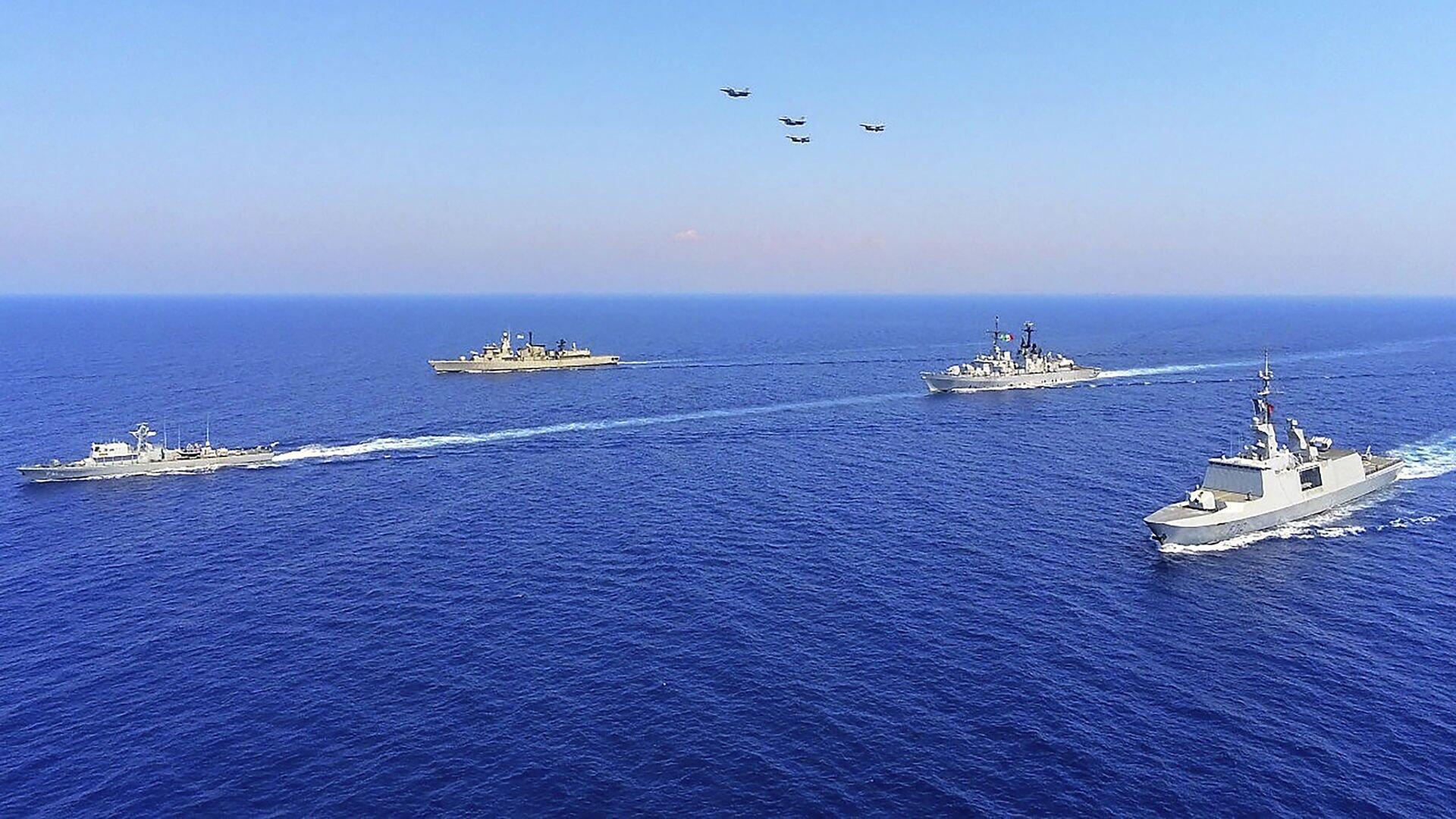
Turkey has vowed no compromise on its sovereign rights in the Aegean and Mediterranean seas in the ongoing dispute with Greece and Greek Cyprus, days before EU leaders are set to meet to discuss possible sanctions on Ankara because of its unilateral hydrocarbon activities in the disputed waters.
“Greece, as the spoiled child of Europe, aims to provoke EU sanctions on Turkey based on its maximalist and illegitimate maritime boundary and airspace claims. No sanctions will ever make Turkey compromise its sovereign rights be in Meis/Kastellorizo or 10 [nautical mile] nm airspace,” read a Twitter message posted by the Foreign Ministry in response to Greek Foreign Minister Nikos Dendias’ article on Turkey.
The Greek foreign minister strongly criticized Turkey as a clear threat to the security of Europe and insisted that its actions should not be left without consequences by the European Council slated to meet on Dec 10 and 11.
The message issued by the Turkish Foreign Ministry renewed Turkey’s call on Greece to return to the table to discuss the differences, saying, “Greece should engage in unconditional dialogue with Turkey, sooner rather than later.”
Although Turkey and Greece have agreed to resume the exploratory talks in late September, the two sparring parties could not return to the table due to escalation in the eastern Mediterranean in mid-October. There is no projection that Greece will accept talks with Turkey in the coming days or weeks as Athens also cancelled a NATO-led de-confliction initiative between the Turkish and Greek armed forces.
With days left to the EU Council meeting, both Athens and Ankara seem to have accelerated their diplomatic efforts. Dendias paid a visit to Greek Cyprus and held a phone conversation with French Foreign Minister Jean Yves le Drian to coordinate their stances at the General Affairs Council which 27 foreign ministers will attend on Dec 7.
France, Greece and Greek Cyprus demand a strong answer to Turkey through a comprehensive sanctions package with the objective of hurting the Turkish economy. They are trying to convince other members, including the term president Germany that this is the sole way to ensure the sovereign interests of the EU members against Turkey.
The foreign ministers will exchange views about a number of issues in a bid to get prepared for the leaders’ summit on Thursday and Friday.
Greece starts military drill
In the meantime, the Turkish Defense Ministry has informed that Greece issued on Dec 6 a new NAVTEX, an advice sailors, about a military training drill on Dec 7 in a region partially overlapping with the Turkish NAVTEX area. In response to the Greek NAVTEX, Turkey issued its own advice to sailors for the security of the shipmen and navigation safety.
The Defense Ministry also informed that Turkish Navy Forces have no activity in the said area.
Çavuşoğlu will talk to French FM
In Ankara, the Turkish Foreign Ministry is also actively exerting efforts to avoid sanctions that can have strong impacts on the future of Turkey-EU ties. Foreign Minister Mevlüt Çavuşoğlu discussed the recent developments on ties between Turkey and EU as well as Cyprus with Italian Foreign Minister Luigi di Maio on the phone over the weekend. Italy, along with Spain, are among countries opposing the imposition of sanctions on Turkey.
In the meantime, Çavuşoğlu is also expected to hold a phone conversation with his French counterpart le Drian on Dec. 8 as he informed about the initiative in a webinar last week. Turkey and France are in a deep standoff over a number of regional conflicts from Syria to Libya and Nagorno-Karabakh, often accompanied with a strong-worded quarrel between the two countries’ presidents, Recep Tayyip Erdoğan and Emmanuel Macron.
Turkey, which has the longest continental coastline in the eastern Mediterranean, has rejected the maritime boundary claims of Greece and the Greek Cypriot administration, and stressed that these excessive claims violate the sovereign rights of both Turkey and Turkish Cypriots.
Ankara has sent several drill ships in the past weeks to explore energy resources in the eastern Mediterranean, asserting its own rights in the region, as well as those of the Turkish Cyprus.
The Turkish leaders have repeatedly stressed that Ankara is in favor of resolving all outstanding problems in the region through international law, good neighborly relations, dialogue, and negotiation.